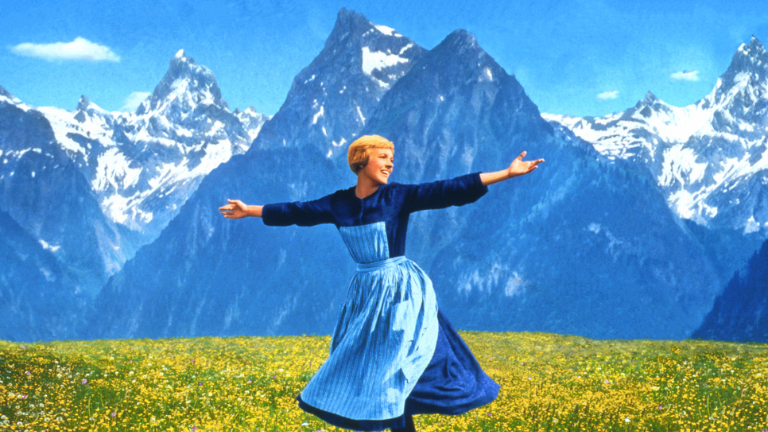
Well, There Goes Your Social Life: The Iconic Characters of Fathom’s Big Screen Classics 2025
Written by on Apr 03, 2025 1:12 PM
The best performances throughout the history of cinema aren’t grounded in standard craft or technique; rather they offer the audience a feeling of invention, connection, emotional depth, and overall relatable growth – regardless of whether the character is likeable or not. This attention to complexity creates some of the most iconic roles, ones that are career-defining and ultimately capture the zeitgeist.
Acting will always be one of the primary pillars of storytelling, often working as a bridge that transports us into the world the director has envisioned. With our 2025 Fathom’s Big Screen Classics series featuring some of the most iconic characters across cinema, we got ready for our close up and shined the spotlight bright on the leading roles that define this year’s lineup.
Harrison Ford as Indiana Jones

In a poll conducted by Total Film Magazine in 2017, Harrison Ford’s iconic role as Indiana Jones was voted the greatest movie character of all time, beating out the likes of Batman, James Bond, Luke Skywalker, and Han Solo. Indy’s trademark fedora, leather jacket, and whip has enamored audiences for decades – inspiring exploration and curiosity, with every adventure tapping into the thrill of discovery.
Unlike other action heroes, Ford injected a blend of intelligence and courage into his character. Focusing on the charisma and charm of being an archaeology professor, and the vast knowledge of ancient civilizations he has. Instead of punching his way through every encounter, Indy uses wit and audacity to outsmart his adversaries. This attention to character inspired an entire generation of viewers to consider archaeology as a career option. So much so that National Geographic published an article in 2023 talking about the influence of Dr. Jones on the discipline for more than 40 years [1].
Alicia Silverstone as Cher Horowitz

“Ugh, as if!” – It’s been 30 years since Cher Horowitz, the protagonist of the 1995 teen classic Clueless, revolutionized what it means to be a Jewish American Princess. Played by Alicia Silverstone, her character embodies an innocent, sassy, and “totally clueless” attitude that has embedded itself into our speech, fashion, and culture.
Besides validating a vernacular filled with the now quintessential “likes and whatevers,” Cher embodied a new type of feminism and confidence that was missing in ‘90s cinema [1]. One that empowered the idea of being confident in yourself while still enjoying shopping for plaid miniskirts and knee-high socks. This type of character was the antithesis of the moody mindset that was common in most scripts written for young adults at the time. Silverstone’s performance cemented her as a cultural icon, and she even reprised the role in a 2023 Super Bowl Ad for Rakuten.
Cher remains a staple of the ‘90s, helping pave the way for more all-yellow shamelessly optimistic and fiercely self-reliant characters.
Jack Nicholson as Randle Patrick McMurphy
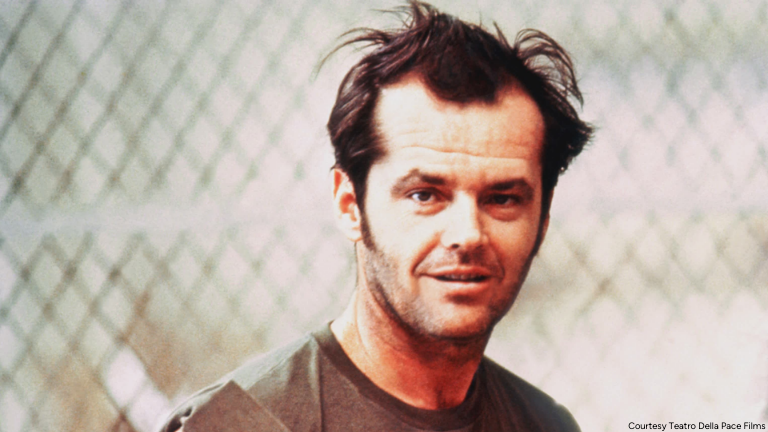
Arguably one of the greatest performances by Jack Nicholson, Randle Patrick McMurphy – a Korean War veteran who pleads insanity over going to jail in One Flew Over the Cuckoo’s Nest (1975) – remains a potent symbol of defiance and the power of the human spirit. Nicholson was no stranger to the spotlight – having come off Roman Polanski’s Chinatown (1974), but this would be the role that pushed his abilities as a method actor, earning him an Oscar® for his performance.
To prepare for the part, Nicholson spent extensive time at psychiatric wards, observing patients and seeing firsthand an electroconvulsive therapy session [3]. This research, along with one of the most influential scripts of all time, culminated in a timeless character that has stuck around in our culture. Employing a dynamic mix of energy, humor, and vulnerability, McMurphy serves as commentary on the dangers of unchecked authority and the cultural views of the Vietnam War.
Gloria Swanson as Norma Desmond

“Mr. Demille, I’m ready for my close up.” – Gloria Swanson’s role as the delusional and desperate silent film star, Norma Desmond in Sunset Boulevard (1950) remains a potent statement on the perils of celebrity culture. Focusing on the shift between the silent era and the Golden Age of Hollywood, Swanson injected her own personal story – in addition to other silent stars such as Mary Pickford, Mae Murray, Clara Bow, and Norma Talmadge – to convey a maddening sense of jealousy and reckless female suffering as her character clings to the image she once had. This unpredictable and unsettling approach complemented Billy Wilder’s vision, creating a tension between her and co-star Willaim Holden (Joe Gillis) that lingers with viewers. Building to Norma’s inevitable demise as she prepares for her close up for the last time.
Swanson’s hauntingly tragic performance highlighted the way the studio system treated its stars – valuing them as commodities to be exploited and eventually cast aside according to their worth. She would win an Oscar® for Best Actress in a Leading Role and ironically be type cast as the eccentric aging-star in future roles. Norma Desmond became a filmic archetype and the ultimate femme fatale, with her influence going well beyond the glamor of contemporary Hollywood – acting as a stark reminder of how fleeting stardom is.
Julie Andrews as Maria von Trapp
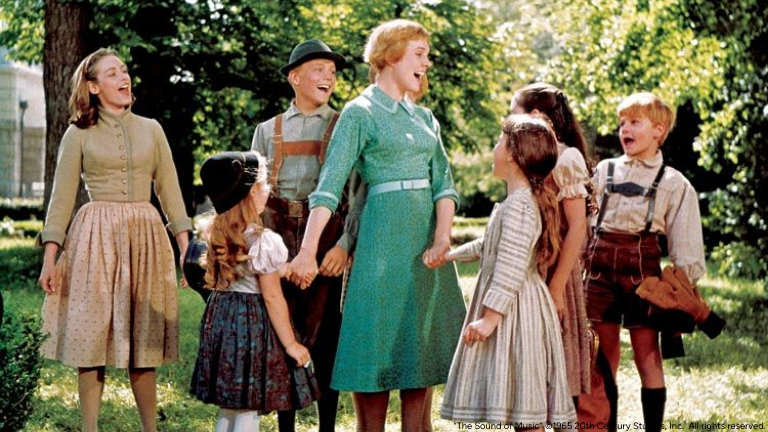
Over 60 years ago, Julie Andrews’ performance as Maria von Trapp in The Sound of Music (1965) mesmerized audiences around the world, helping not only revitalize the popularity of musical theatre in the 1960s, but changing the landscape of Hollywood. The way she was able to inject a relatable charisma into her role, all while seamlessly transitioning between acting and singing, brought the character to life in a way that captivated viewers of all ages.
Andrews’ approach to Maria von Trapp challenged traditional gender roles, offering a strong, fiercely independent, and free-spirited female protagonist that continues to resonate with audiences – and helped set a new standard of empowering female roles.
Sylvester Stallone as Rocky Balboa

Rocky Balboa, the signature role played by Sylvester Stallone, is considered the third most recognizable movie character of all time [5]. Promoting the themes of perseverance, hard work, and overcoming adversity against all odds, Balboa became a symbol of the working class. Using his heart and unwavering motivation to overcome any challenge put in front of him. His dreams of standing toe to toe with the greatest boxers became our dreams as well. Inspiring millions and creating the purest form of an underdog.
Stallone’s writing, directing, and performances grew as the series progressed throughout the decades – encapsulating the zeitgeist of mainstream culture at the time. This culminated with arguably the best film in the franchise, Rocky IV: Rocky vs Drago, with his character becoming a symbol of the American mindset during the Cold War. Balboa represented the triumph of American values over the seemingly unbeatable might of Drago and the Soviet Union. His legacy was cemented in Hollywood, helping create one of the greatest franchises of all time.
Fathom’s Big Screen Classics 2025
From Cher Horowitz to Randle Patrick McMurphy, the characters in this year’s Fathom’s Big Screen Classics lineup have contributed to the history of cinema – inspiring generations of viewers and filmmakers. Whether it’s through emotional complexity, discovery, or just downright embodying the dreams of the working class, each became a staple of storytelling and our culture. As Norma Desmond said, and it’s true for each of these roles – the pictures are too small for the impact the performances had on society.
Sign up for our newsletter to keep up to date with all our screenings.
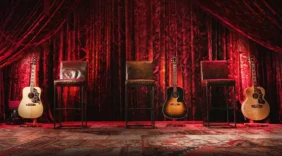
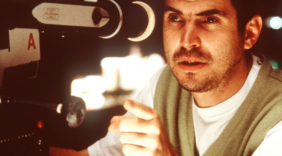
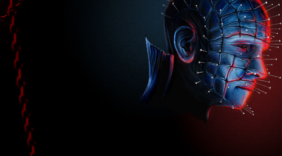
"*" indicates required fields